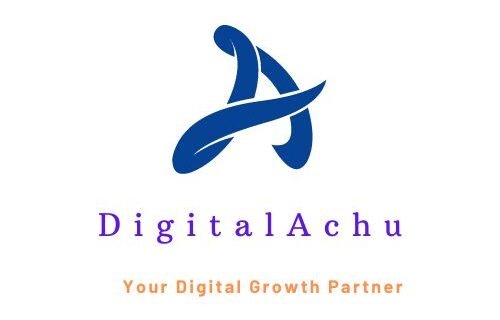Content Marketing

Introduction
Content marketing has quickly become a cornerstone of successful marketing strategies for businesses of any size in today’s digital era. Content marketing is defined as an approach to strategic planning that involves creating, publishing and disseminating valuable and relevant information that attracts, retains and engages an audience that has been clearly defined. Instead of simply targeting potential customers directly via traditional methods like advertisements, content marketing provides value by offering engaging, educational or inspiring material tailored specifically towards meeting customer needs and desires.
Content marketing entails building trust between brands and their target audience. By consistently providing high-quality articles that solve problems or offer insights, companies can establish themselves as thought leaders in their industry and strengthen customer loyalty while increasing revenue streams through increased customer behavior.
Content marketing covers an expansive spectrum of media formats – blog posts videos social media updates podcasts information graphics and podcasts among them – that serve a particular goal while engaging the target audience in different ways – making content marketing an immensely versatile marketing tool.
Content marketing provides businesses with a discreet way of reaching out to customers in today’s media environment, helping them stand out while leaving an impactful message with their audience.
what is Content Marketing

Content marketing is an approach to strategic management that involves producing and disseminating high-quality, relevant, and consistent content that engages and attracts a defined target audience. Contrary to traditional advertising which primarily promotes products or items for sale, content marketing provides information tailored specifically for its target users that addresses their pain points – hopefully leading them down a path of purchasing, subscribing or engaging meaningfully with a company in other meaningful ways.
Content marketing involves getting to know your customers and providing them with engaging yet useful content that meets their preferences and expectations. This could take many forms such as blog posts, videos podcasts infographics updates media e-books or anything else relevant. Each type of content serves a distinct purpose while contributing towards building an integrated strategy which caters for different audience preferences.
Content marketing strategies that are carefully planned and executed do more than increase brand recognition and exposure; they also establish the brand as a credible authority within its field. By consistently providing top-quality content, companies can build customer trust that encourages customers to choose their products over those of competitors. In addition, content marketing supports other marketing efforts, including SEO processes and social media strategies by providing relevant material that drives organic traffic growth while simultaneously increasing engagement levels.
Content marketing entails making meaningful relationships with your customers through quality content that leads to long-term success for your business.
Types of Content Marketing

Types of Content Marketing
1. Blog Posts
Blog posts form the basis of content marketing. They offer regularly updated content on your site that offer important information to your customers. They can cover a vast spectrum of subjects including industry news, tutorials to essays and case research. Blog posts are a great way to increase visitors to the website and improve your Search Engine Optimization (SEO) ranking and establish your reputation as an expert in your area of expertise. By answering the most frequently asked questions and addressing issues blogs can entice readers and inspire them to look into your products further.
2. Videos
Videos are a highly entertaining type of content that can help explain complicated topics, showcase the products or tell captivating stories. With platforms such as YouTube as well as social media platforms placing a high value on video content, making quality videos can dramatically increase your visibility and engage. Videos can come in many types, such as tutorials, testimonials, product demonstrations and behind-the-scenes glimpses of your company. Their audio and visual nature makes them a great device for grabbing the attention of viewers and effectively conveying your message.
3. Infographics
Information graphics are graphic representations of data and other information intended to be easy to understand and share. They are especially useful to present research, statistics, results, or process information in a visual style. Infographics quickly communicate complex details, making them extremely accessible on social media and other platforms. They do not just enhance the aesthetic appeal of your content, but can also assist in making information simpler and clearer for your readers.
4. Social Media Posts
Posts on social media are brief powerful messages and images that are shared on platforms like Facebook, Twitter, LinkedIn and Instagram. They include promotional content as well as industry news to behind the scenes glimpses or user generated content. The posts on social networks are great to build brand recognition, engaging your followers in real-time and increasing traffic to your site. Utilizing the interactivity on social networks, you will be able to create a sense of community and connect directly with your clients.
5. E-books and Whitepapers
Whitepapers and ebooks are in-depth guidebooks or report that provide thorough information on specific subjects. These content pieces that are long-form are great for providing extensive details and helping establish your brand as an authority. Whitepapers and ebooks are commonly utilized as lead magnets, providing useful information as a reward for contact details. It does not just generate leads, but also aids in nurturing prospective customers by giving them the necessary information to make informed choices.
6. Podcasts
Podcasts are audio media that provide a platform for deep discussions, stories, and interviews. They are particularly useful for people who enjoy consuming content while on the move. Podcasts cover a broad variety of topics, with experts in interviews, analysis of industry as well as stories. They aid in building an audience that is loyal by providing entertaining and informative content in a format that is easy to access.
7. Case Studies
Case studies provide detailed descriptions of how your product or services have assisted customers in achieving their objectives. They offer actual examples of your products and services that are in use showing their efficiency and worth. Case studies are a powerful tool to establish credibility and trust because they show the tangible results of your solutions and ensure that customers are satisfied. Through highlighting successful stories cases can convince prospective customers to select your company.
8. Email Newsletters
Newsletters via email are regularly delivered to your email subscribers that provide valuable content as well as information about your company. They’re an effective method to keep your customers up-to-date and entertained, with an array of content that is curated along with promotional offers as well as personal information. Newsletters can help keep a clear channel of communication with your target audience, creating an impression of loyalty and making your brand visible in the minds of your customers. By making your email list segmented it is possible to tailor your content to specific segments, which will ensure relevance and boosting engagement.
Through the use of these various kinds of content marketing, companies can efficiently reach and engage their intended customers, generate traffic, and reach their goals in marketing.
Content Marketing Strategy

Content Marketing Strategy
The content marketing approach is a thorough strategy for engaging your audience by regularly publishing or maintaining useful content. The content is designed to educate and entertain the audience, ultimately turning strangers into fans and to loyal customers. This step-by-step guide will help you in making a method of marketing content:
1. Set Your Goals
The first step in developing an effective content marketing plan is to establish specific, concrete objectives. What are you hoping to achieve through your content? Common goals include:
- Increased brand awareness: Making more people aware of your company.
- Driving traffic to your website: Encouraging more visitors to your website.
- Generation of Leads Attracting new customers, who are then nurtured into buying.
- Promoting sales: Directly increasing your revenues by creating targeted content.
Set specific, quantifiable feasible, pertinent with a time limit (SMART) goals can aid in determining your plan and evaluate the success of your plan.
2. Understand Your Audience
Knowing your audience is vital to create content that is resonant with your audience. Conduct thorough research in order to know the needs of your audience and preferences as well as the behaviors. Surveys and social media insights and web analytics can provide useful data. Create buyer personas that are detailed to portray your ideal customer with their interests, demographics as well as their challenges and how your products or services will help them solve their issues.
3. Content Audit
Before you create new content, look over your current content to determine what been successful in the past and what’s not. Find gaps where the need for new content arises or areas that existing content could be improved or reused. A content audit can help ensure that your content is aligned with your current objectives and the needs of your audience.
4. Content Planning
Select the kind of content that best satisfy your target audience and meet your objectives. This can include:
- Blog posts: In-depth articles, which give value and provide insight.
- Video: Visually engaging content for tutorials, explanations or for storytelling.
- Information Graphics Graphic representations that represent information and data.
- Social Media Updates Posts that are quick, interesting and easy to engage your target audience.
- Whitepapers and E-books: In-depth guides or articles on a specific topic.
Create a calendar of content to manage and plan your content creation and publication. This helps ensure consistency and organize your workflow effectively.
5. Content Creation
Create high-quality, engaging content that is aligned with the interests of your target audience as well as your company’s goals. Concentrate on offering value and solving the needs of your target audience. Utilize compelling headlines, striking images, and clear, simple writing in order to keep your readers interested. Engage with influencers or experts in order to boost the authority and impact the content.
6. Distribution
Sharing your content on the appropriate channels is equally important as writing it. Share your content on various platforms on which your target audience is active for example:
- Your Web Site: The central hub for your content.
- Social Media Social media platforms like Facebook, Twitter, LinkedIn, and Instagram.
- E-mail Newsletters: Updates regularly sent to customers.
- guest blogging and partnerships: Making your presence more visible by displaying on other sites.
Create content that is customized to the unique features that each site has and the best ways to maximise engagement.
7. Analyze and Optimize
Monitor your content’s performance regularly by using tools for analytics such as Google Analytics, social media insights or marketing automation software. Analyze key metrics like engagement as well as leads, traffic and conversions to figure out the things that are working and what’s not. Make use of these data points to refine your strategy, improve the quality of your content and make informed decisions regarding future content development.
Following these steps, you will be able to create a solid content marketing strategy that draws your audience’s attention, increases traffic and reaches your goals for business.
Benefits of Content Marketing
1. Increased Brand Awareness
Regularly publishing quality content can help your brand to become more well-known and admired by your customers. Quality content that meets your target audience’s interests and needs helps keep your brand prominent in the minds of your customers.
2. Improved SEO
The quality of your content will improve your rankings on search engines which makes it easier for prospective customers to find you on the internet. By optimizing your content using relevant keywords and continuously making changes, you’ll be able to increase your search engine visibility. engines such as Google.
3. Audience Engagement
Content that is engaging keeps the customers engaged and makes them want to engage to your company. Through shares, comments, or likes on your page, the customers become increasingly connected with your company, creating the community around your company.
4. Lead Generation
Quality content draws prospective customers and assists in turning these into lead. The use of resources like e-books whitepapers or webinars with contact information will generate leads of high-quality to your sales staff.
5. Cost-Effective
In comparison to traditional advertising, content marketing is typically less expensive and delivers more long-term benefits. Making content that is evergreen and relevant throughout time gives you continuous benefit without the need for ongoing expenditure.
6. Builds Authority
Offering expert advice and valuable information helps establish your brand with respect to your field. When you share consistently informative information, your customers will look toward you, establishing yourself as a reliable source, which will increase your reputation and credibility.
Conclusion
The use of content marketing in the past has revolutionized the way businesses interact with their clients. By making sure that they produce and distribute relevant, useful and consistent content, companies can develop significant relationships with their customers and achieve their goals in the field of marketing more effectively. In contrast to traditional marketing that tends to be disruptive and disorienting, content marketing offers a natural approach that draws customers in through involvement as well as education.
The main benefits of utilizing content marketing is its ability to boost the reputation of your brand and increase trustworthiness. When companies consistently provide top-quality content that is customized to the desires and needs of their intended audience as well as their clients They establish themselves as thought-leaders in their areas. This helps not just to attract new customers, but also to build trust and build loyalty with current customers.
Content marketing is a crucial part in improving SEO of a website (SEO). High-quality content that is optimized with keywords relevant to the site’s content will dramatically increase a website’s ranking in search results, which helps potential customers to locate the company online. Furthermore, different types of content like blog posts, video infographics, and social media updates could enable companies to interact and connect with a wider audiences across different platforms.
Another benefit content marketing provides is that it’s economical. In comparison to traditional advertising methods which rely on advertisements and marketing, content marketing generally requires a cost which is less, but it yields higher profits over the long run. By creating content that is useful and valuable for a longer duration, companies can keep attracting and enthralling their people without needing to constantly advertising.
In today’s digital age, the importance of content marketing cannot be understated. It’s not only a supplement to other strategies for marketing however, it can also serve as an element of creating an established, well-known brand. As the changes in the way people behave and businesses are adopting the use of content marketing in media will be able to meet the demands of their customers and stand out in a highly competitive market place.
In the final analysis it’s not only a trend and is a vital element of modern marketing strategies. If they focus on providing top-quality content, companies can enjoy sustained growth, boost customer satisfaction and ultimately lead to long-term prosperity. The importance of adopting the concept of content marketing is essential for any company that wishes to thrive in this modern day and age.

